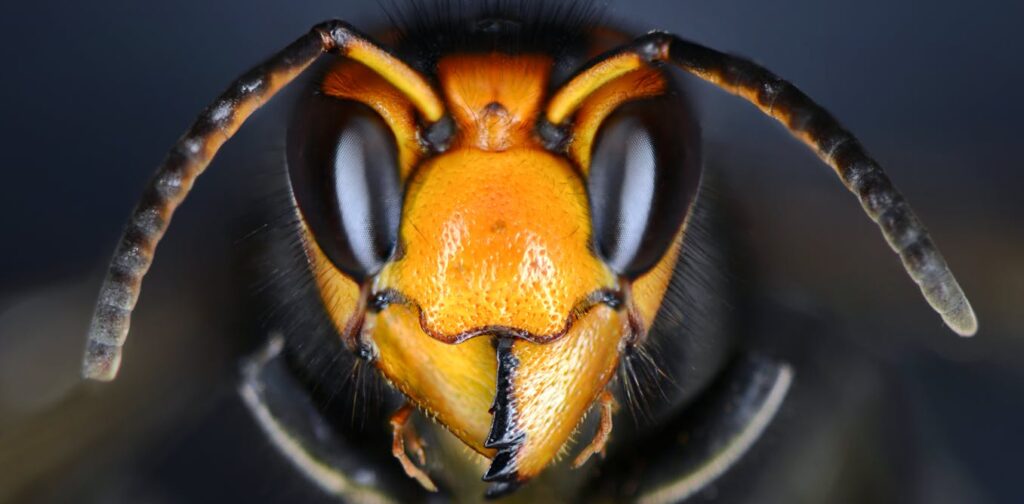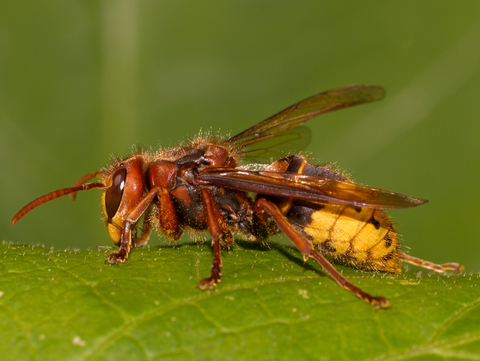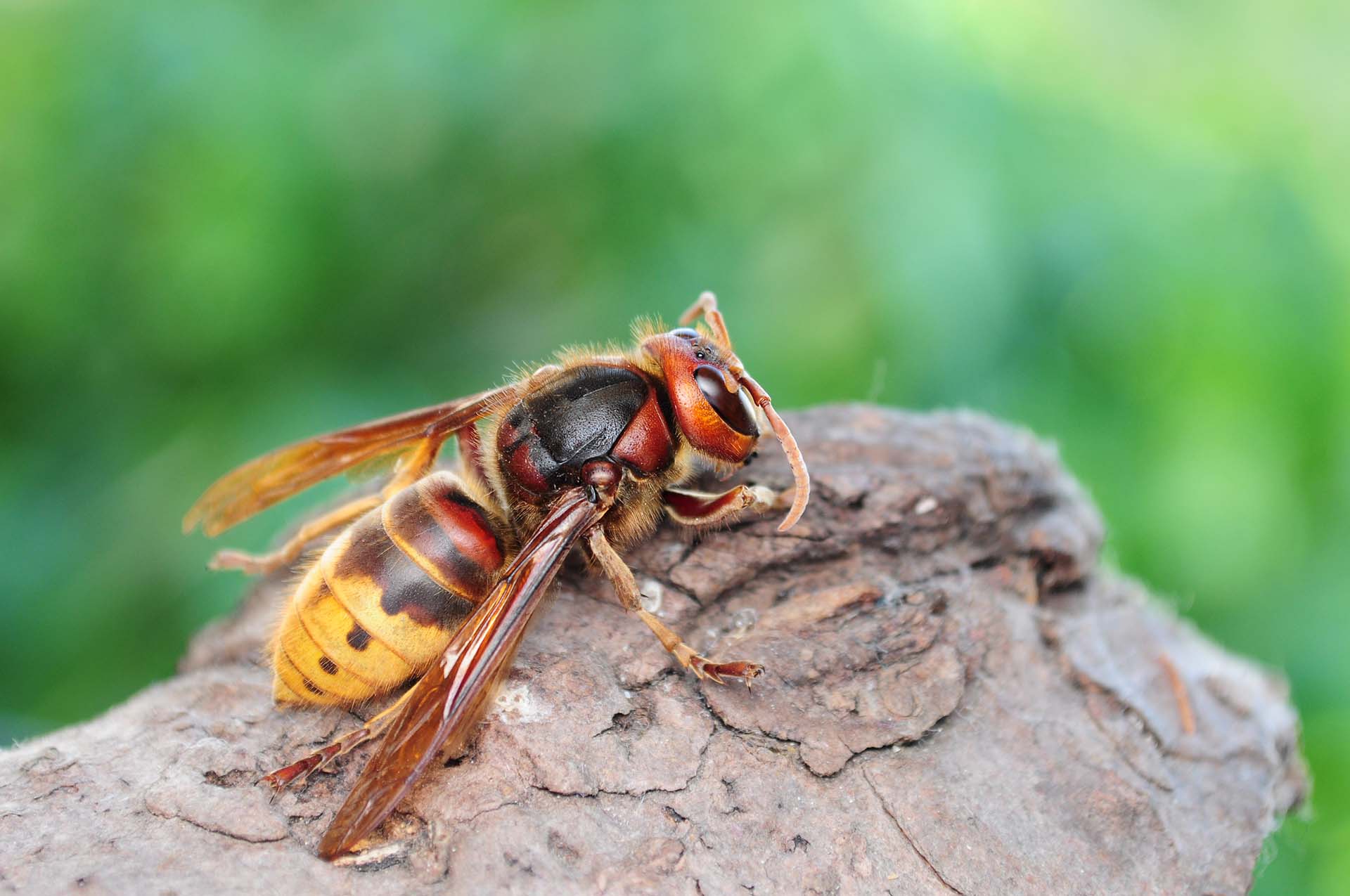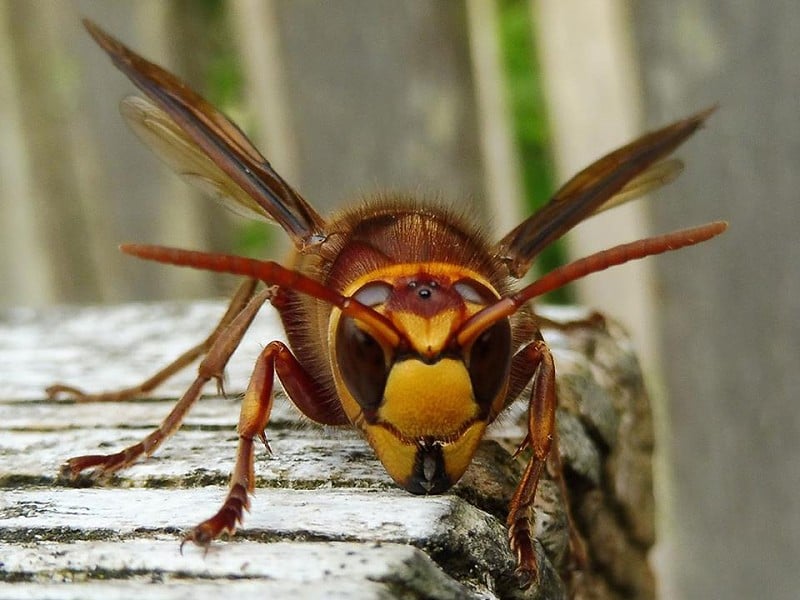
Having problems with hornets?
Hornets are larger and bulkier than common wasps and can become a real safety issue when a nest is near doors, paths, play areas, or inside roof voids and wall cavities.
They are usually calm away from the nest, but will defend it vigorously if disturbed. If you suspect a nest, keep people and pets well away and contact Shire Pest Solutions for safe professional treatment.
Professional Hornet Control Services in the UK
Hornets are the UK’s largest social wasps. Activity peaks from late spring to early autumn, then colonies die off in winter. New queens overwinter and start fresh nests in spring. Old nests are not reused, although new queens may build nearby.
Where Hornets Commonly Nest
- Roof spaces, lofts and attics
- Wall cavities and voids
- Sheds, garages and outbuildings
- Hollow trees, dense hedges and shrubs
Why Hornet Nests Can Be a Problem
Hornets are typically calm away from the nest, but they defend it aggressively if threatened. Stings are painful and can trigger severe allergic reactions. If someone experiences breathing difficulty, swelling of the face or neck, or dizziness, seek urgent medical help.
Prevention Tips
- Keep bins shut and remove fallen fruit
- Minimise bright outdoor lighting at night which attracts insects and foraging hornets
- Fit insect mesh to vents and loft gaps
- Check eaves, sheds and roof spaces in spring so starter nests can be dealt with early



Hornet Control FAQ
More About Shire Pest Solutions
Shire Pest Solutions is a trusted and local pest control company proudly serving homes and businesses across Oxfordshire and beyond. We have built our reputation on professionalism, reliability, and fast response times, specialising in the safe and effective removal of pests including ants, wasps, rodents, bed bugs, and more.
Our expert technicians hold full qualifications and use the latest tools and treatments to resolve pest problems quickly and safely—without unnecessary disruption. Whether you face a minor domestic issue or a large-scale commercial infestation, we design our services to meet your needs with minimal fuss and maximum effectiveness.
Based locally, we regularly assist customers in Didcot, Wallingford, Abingdon, Wantage, Witney, Newbury, Thame, Thatcham, and Stokenchurch. Our knowledge of the local area enables us to provide rapid call-outs and treatments that are suited to the unique pest challenges of each location.
At Shire Pest Solutions, we don’t just eliminate pests—we stop them from returning. We offer transparent pricing with no hidden fees, and we dedicate ourselves to customer satisfaction, making us the go-to pest control provider for homeowners, landlords, and commercial clients alike.
Contact us today to arrange a call-out or find out more about our pest control services across Oxfordshire and surrounding areas.


Recent Comments